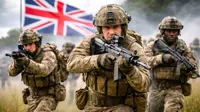Sierra Leone’s 72-hour shutdown to contain Ebola draws criticism
22 Sep 2014
Even as Sierra Leone's 72-hour nationwide shutdown entered its final day today, criticism grew that the drastic measure aimed at containing the spread of the deadly Ebola virus was little more than a poorly planned publicity stunt, the Associated Press reported.
The measure saw most of the West African country's 6 million people confined to their homes since midnight local time on Friday, with only essential workers such as health professionals and security forces exempt.
Around 30,000 volunteers were engaged in a door-to-door exercise to educate locals and distribute soap, which, according to commentators, would likely turn up scores of patients and bodies discovered in homes.
But independent observers have voiced concerns over the quality of advice being given out, deeming the shutdown a ''mixed success'' in the Western Area, the region that includes the capital Freetown.
According to Abukakarr Kamara, from the Health for All Coalition, a local charity, while the supervisors were well trained, teams visiting the families in some parts in the Western Area had poor training and could not deliver the information properly.
He observed that many of them were too young to be involved in the exercise and in one or two households where he witnessed their intervention, there were hardly messages given to the families which were beneficial to the households.
Meanwhile, according to The Boston Globe, the international response to the Ebola outbreak in West Africa had not only been weak, it was also a sign of the world leaders' inability to recognise a disease outbreak in a trouble spot, that not only posed a humanitarian crisis, but also a security threat.
However, six months into the outbreak, there was not even a central place where individuals could donate to help. Meanwhile, Doctors Without Borders, an organisation that had warned that the world was ''losing the battle'' to contain Ebola, had shouldered the lion's share of the burden of caring for victims. The efforts of another organisation, Boston-based Partners in Health, were commendable in channeling support to two local organisations, Last Mile Health in Liberia and Wellbody Alliance in Sierra Leone.
Such voluntary efforts cannot substitute for a concerted multinational response, and president Obama's decision to dispatch 3,000 soldiers to set up 17 field hospitals in Liberia, each with 100 beds that offered some measure of relief was most welcome, according to commentators. Logistics is best left to the US military, and the effort, it was hoped, would help bring in supplies and doctors to Liberia, Sierra Leone, and Guinea - affected countries largely abandoned by commercial airlines.
But, even with the response of the US and other powers, it did not amount to little more than playing catch-up. The tardy response had already allowed the virus to spread exponentially. Although there were only about 4,200 confirmed cases so far, including 2,400 deaths, according to global health officials, 20,000 people would be infected with the virus by the end of October. In that backdrop, the 1,700 hospital beds though a step in the right direction, was still insufficient to meet the need.

















